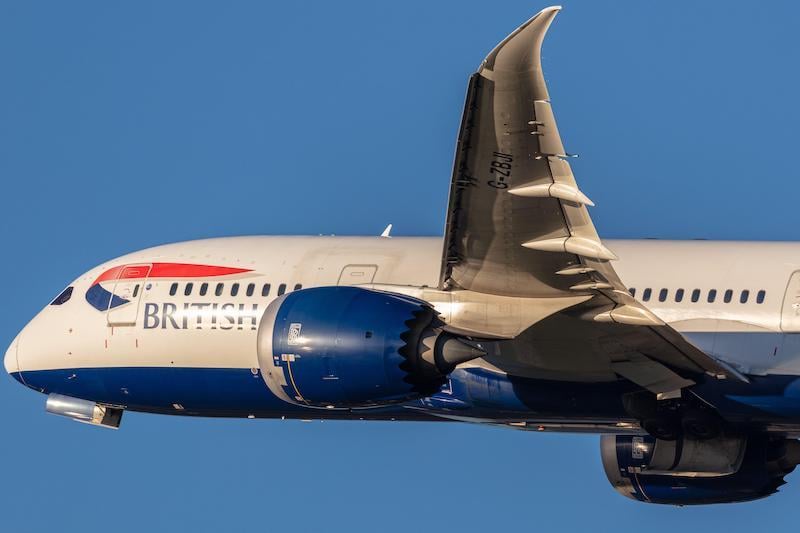
Rolls-Royce Trent 1000 engines power British Airways' current 787 fleet.
FARNBOROUGH—British Airways has selected GE Aerospace's GEnx-1B engine for six incoming Boeing 787s rather than its current engine partner on the widebody, Rolls-Royce.
Commenting on the order, BA CEO and Chairman Sean Doyle told Aviation Week, "We ran a competition this time around and we factored in cost and quality, your total cost of maintenance, and that's been the driver of our decision."
"About 45%-50% of our engines are the GE, 50% are with Rolls—I think we need competition," Doyle said during a July 23 briefing here at Farnborough Airshow. "I think in the future we’d run the same processes—competition is very important to us."
BA has not disclosed what engines will power its remaining four 787-10s on firm order. "We've closed out the selection for these six planes, but there's a lot more in play in future," Doyle said.
BA currently operates 35 Rolls-Royce Trent 1000-powered 787-8s, -9s and -10s. The airline has a further 10 787-10s on firm order, six of which will now be equipped by the GE engines. “The GEnx engine is performing well, with millions of reliable flight hours under wing and proven fuel efficiency and economics,” BA parent International Airlines Group (IAG) said in a statement. BA is IAG's only 787 operator but that would change if the group's acquisition of Air Europa is approved by regulators. The Spanish leisure carrier also operates a Trent 1000-powered fleet.
IAG's selection of the GEnx is part of a broader trend. According to the Aviation Week Network Fleet Discovery database, 787 customers have selected GEnx engines for 677 aircraft versus Trent 1000s for just 71. The Trent 1000 has had maturity problems for several years that have substantially affected operations at many airlines.
“We’ve lost market share on this engine because it’s not sufficiently durable,” Rolls-Royce head of engineering Simon Burr said at a recent company briefing.
Rolls-Royce is introducing Trent 1000 design enhancements made on other engines, including the high-pressure turbine on the Trent 7000. Flight testing should start in August and last about eight weeks to clear the upgraded engine design for operational use. Burr said It should bring about a “step-change” in durability. The company expects to deliver a doubling of time-on-wing and says it will pursue additional upgrades for a further 30% durability improvement.



